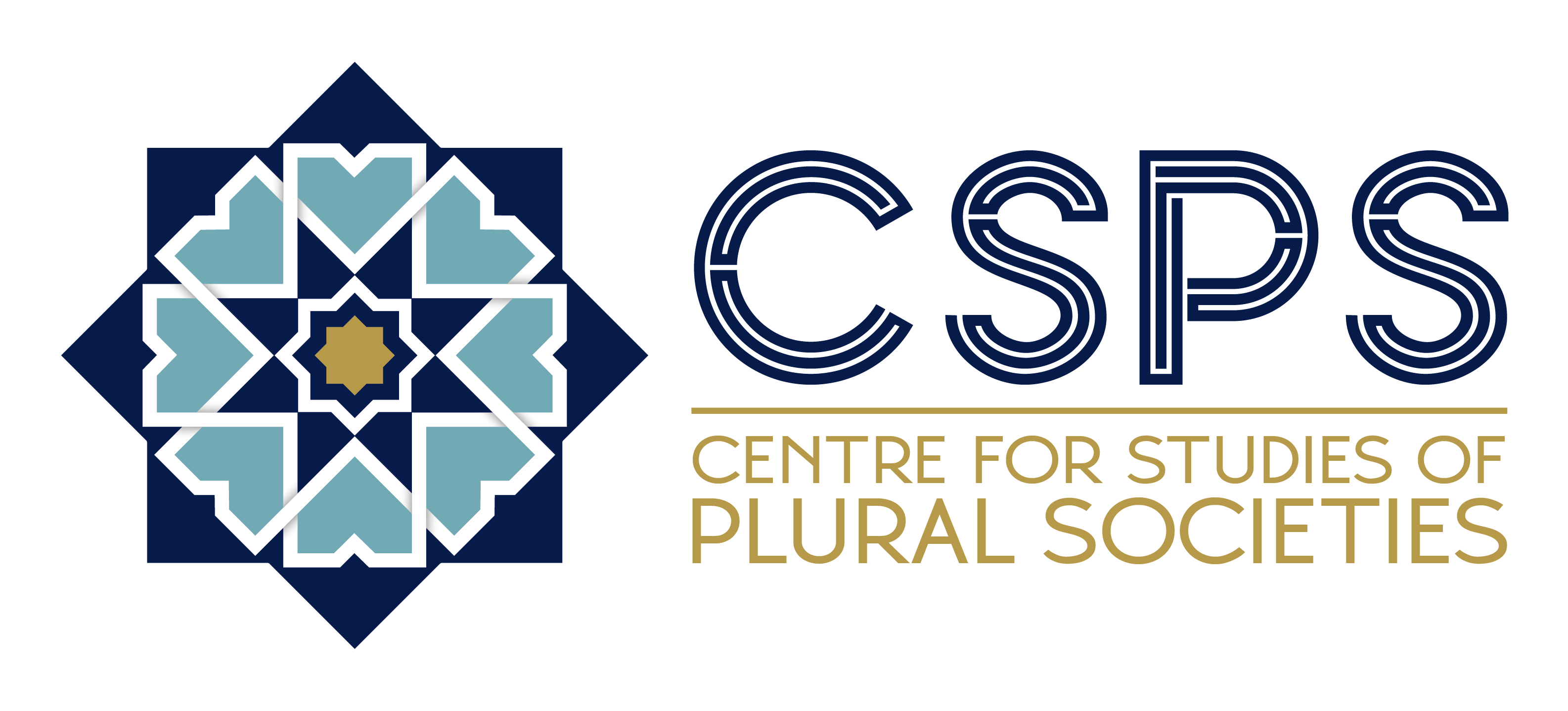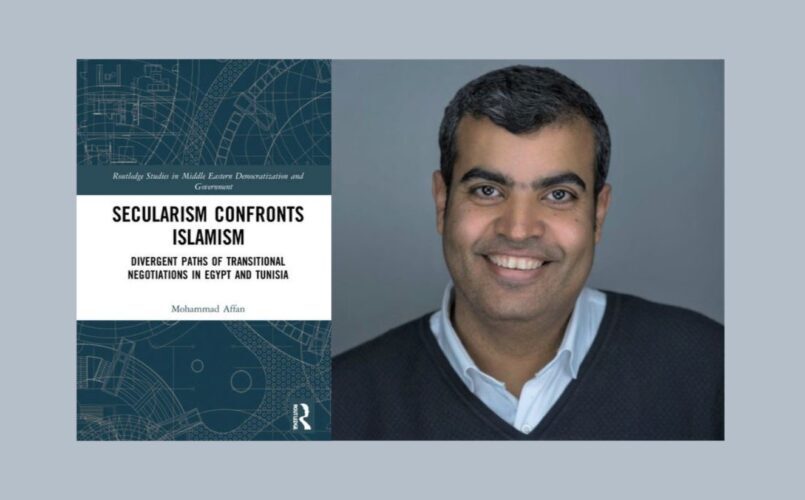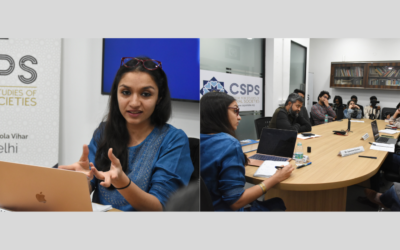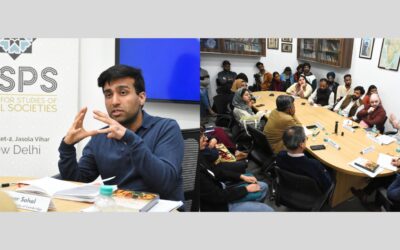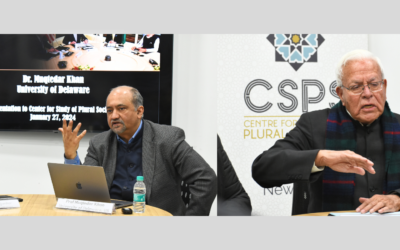The Centre for Studies of Plural Societies organised an online book discussion on Secularism Confronts Islamism: Divergent Paths of Transnational Negotiations in Egypt and Tunisia by Dr Mohammad Affan, Director of Research at Al Sharq Strategic Research Geneva, Switzerland on 21st February 2022. The session was chaired by Dr Omair Anas, Director (Research) of the Centre for Studies of Plural Societies.
About the Author: Dr Mohammad Affan is the acting Director of Al Sharq Strategic Research, the coordinator of the Al Sharq Program on Political Islam, and the managing director of Al Sharq Academia. A medical doctor by training, he holds a PhD from the Institute of Arab and Islamic Studies, University of Exeter. His doctoral thesis was published in Arabic as a book titled, Wahhabism and the Brotherhood: The Conflict on the Concept of the State and the Legitimacy of Power. His research interests include Islamism and democratisation in the MENA region.
About the Chair: Dr Omair Anas is the Director (Research) of the Centre for Studies of Plural Societies. He was earlier associated as a Research Fellow with the Indian Council of World Affairs, New Delhi, an autonomous think-tank of India’s Ministry of External Affairs. Dr Anas received his PhD from the Centre for West Asian Studies, Jawaharlal Nehru University, New Delhi, in 2015. He has published several research papers in international journals, edited volumes, and international think tanks. His commentaries and comments appear in prominent print and broadcast media, including Al-Jazeera, BBC, Middle East Eye, TRT, World and Indian Express.
Commencement of the Session: Secularism Confronts Islamism: Divergent Paths of Transnational Negotiations in Egypt and Tunisia provides an in-depth examination of the recent confrontation between Islamists and secularists in Egypt and Tunisia. The book presents a new approach to understanding Islamism and secularism and addresses the variables that could affect the outcome of transitional negotiations. The book provides new insights from the Arab Spring experience by examining the causes of the conflict between the secularists and the Islamists during the transitional period. The book is a key resource for academics and students interested in democratisation theory and Middle East politics.
Dr Omair Anas opened the session with a brief idea about the curiosity around the subject of confrontation between Islamism and Secularism, which he said is an ongoing debate and often becomes a subject of concern around national security. He also talked about the biased viewpoint of western stakeholders when it comes to academic writing around Islamic ideology. On the contrary, West Asian stakeholders tend to navigate between the discourses of their authoritarian and Islamic ideologies. Dr Anas talked about how the change to this discourse began with Turkey when they merged Islamism and market values and brought a new model of Islamism and democracy. It was a chance for Islamism to prove that it can comply with democracy and secularism. However, the counter-revolution and the military coup in Egypt reversed all the positive changes that took place.
Thus, introducing the subject of the book and a brief background about it, Dr Anas handed over the stage to Dr Mohammad Affan, whose book became one of the first to document the dialogue between Islamism and Secularism.
Dr Affan started the book discussion by highlighting the importance of democratisation and negotiation and how the virtue of negotiation and compromise is important. He talked about his book and the process behind its materialisation. The idea of the book was to understand the recent confrontation between Islamism and Secularism in Egypt compared to what happened in Tunisia during the transitional period.
The most prominent question that the book set out to ask was: “Why did Islamists and Secularists in Tunisia succeed in reaching a political compromise during the transitional phase while they failed in Egypt?” There are three other focal questions that the book tries to answer.
- What do Islamism and secularism exactly mean in the context of the Arab Spring?
- Who negotiated with whom on what during the transitional period?
- What were the determinants that shaped the transitional negotiations in Egypt and Tunisia?
Dr Affan further talked about the research design that he employed for the book, the theoretical approach involved, and the variables used to solidify his claims. He gave the outline of the book and elucidated the key themes of each of the eight chapters in the book. After describing the skeletal structure of the book, he dove into the explanation of the three primary questions mentioned earlier.
Dr Affan argued that Islamism is not equivalent to Islam but one of the modern manifestations of Islam. According to him, “Secularism and Islamism are two casual loosely bounded domains, which encompass diverse tendencies and ideological inclinations.” Dr Affan explained how the secularist and Islamist sub-ideologies are a horseshoe-shaped continuum. He further discussed four main categorisations of secularism, viz. anti-religious secularism, irreligious secularism, areligious secularism, and religious secularism.
As the session progressed, it led to an understanding that Secularism and Islamism in the context of Arab Spring should not be considered mutually exclusive. These are two grand ideologies aiming at re-making of Islam in the modern era. Dr Affan also explained who negotiated with whom and over what during the transition period.
Dr Affan focussed on the determinants that shaped the transitional negotiations in Egypt and Tunisia. They were classified as Macro-structural variables, Meso-structural variables, and Micro-acrocentric variables. He presented six arguments around the subject to conclude the idea of Islamism and Secularism in Egypt and Tunisia. He also pinpointed some significant causes of conflict between the two. Dr Affan presented his concluding remarks stating that the meaning and implications of secularism and Islamism should be carefully reconsidered as transition is a very exceptional experience with no established golden rules.
The report is prepared by Nawa Fatima, a research intern at CSPS
